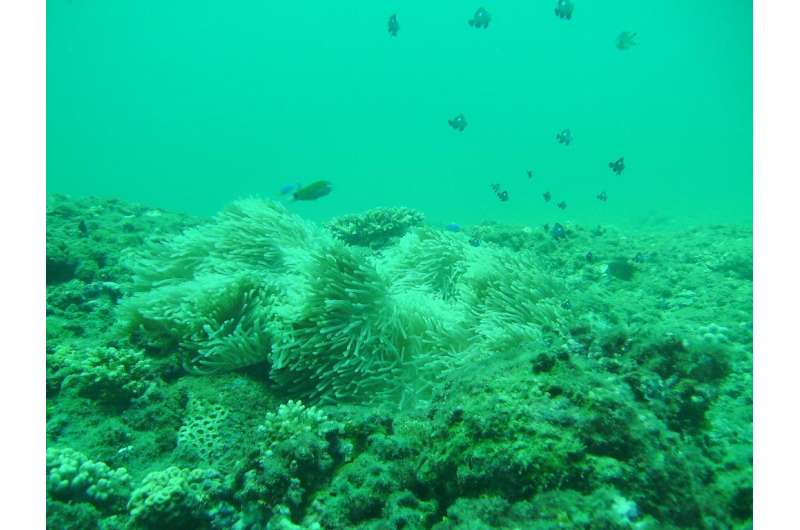Research aims to preserve the future of Ningaloo Reef corals

Researchers at The University of Western Australia are a step closer to discovering more about the health of our oceans after analyzing how coral in Ningaloo Reef formed.
Dr. Aleksey Sadekov, a research fellow from UWA's Oceans Graduate School and Master's student Taylor Simpkins, received special permission to explore the World Heritage-listed reef.
They studied how coral skeletons formed over hundreds of years to better predict how coral reefs will adapt to future changes in our ocean environment and the rapidly changing global climate.
"The oceans are changing, so we want to better understand how complex ecosystems like coral reefs are actually responding to these changes," Dr. Sadekov said.
According to Taylor, corals are living creatures that play an important role in maintaining our reef structure that provides a home to more than a quarter of all marine biodiversity.
"It's estimated that more than 500 million people depend on coral reefs globally and we want to make sure the reefs of our future are safe," she said.
During the trip, the researchers were careful to ensure their activities didn't harm the reef.
"The last thing we wanted to do is harm the corals, so we prevented damage by putting a special plug into the coral skeleton," Taylor said. "This allowed the coral to grow and continue to survive just like they did before we were there."
Dr. Sadekov said the corals tended to recover in a few months. "We often try to study the same corals, and struggle to find where we have sampled before," he said.
More than 12 samples were collected from Ningaloo Reef, which will be cultured at UWA's Watermans Bay facility and analyzed using laser ablation and mass spectrometry.
"Just like trees, corals have growth layers," Taylor said. "We are looking for more detail in those layers, so we can better understand how they will cope as we face climate change.
"It's an absolute dream to be able to apply my learning from the classroom in the field."
Dr. Sadekov said while fieldwork was great, the main aim was to build knowledge of changes in coral reefs and influence change in policy that preserves the unique ecosystem.
Provided by University of Western Australia



















